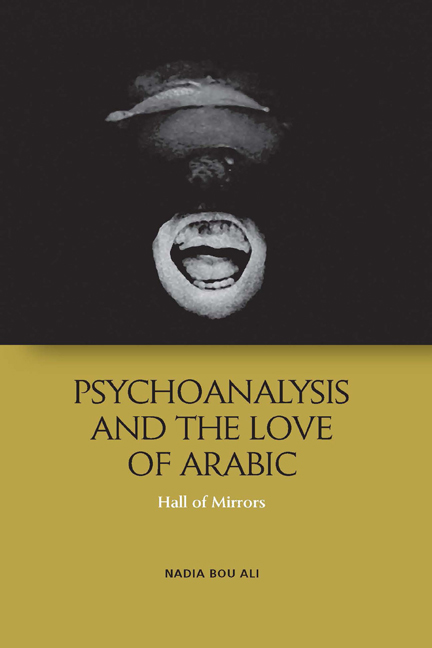Book contents
- Frontmatter
- Contents
- Acknowledgements
- Dedication
- Introduction: The Mirror of Language
- 1 Literature as a Ruthless Excavator of Culture: From the Literary Mode of Being to Lituratterre
- 2 Why is There Lalangue Rather than Nothing? Love of Lugha and Lalangue
- 3 Piercing the Bull’s Eye: The Sexual (Non-)Relation
- 4 A Liberal Psycho-theology
- Conclusion: The Abstractions of Homo Economicus: Now a Stomach, Now an Anus 161
- Notes
- Index
Conclusion: The Abstractions of Homo Economicus: Now a Stomach, Now an Anus 161
Published online by Cambridge University Press: 17 September 2020
- Frontmatter
- Contents
- Acknowledgements
- Dedication
- Introduction: The Mirror of Language
- 1 Literature as a Ruthless Excavator of Culture: From the Literary Mode of Being to Lituratterre
- 2 Why is There Lalangue Rather than Nothing? Love of Lugha and Lalangue
- 3 Piercing the Bull’s Eye: The Sexual (Non-)Relation
- 4 A Liberal Psycho-theology
- Conclusion: The Abstractions of Homo Economicus: Now a Stomach, Now an Anus 161
- Notes
- Index
Summary
All life long the same questions, the same answers!
– Samuel Beckett, EndgameHamlet is in our bowels.
– Henry Miller, Hamlet LettersThe modern impasse hails for the Arabic reading subject a crisis in symbolic identification: there is a retreat of the discourse of the master, a crisis in the symbolic and the relationship between language and law comes to fore. The nineteenth century in particular is marked by the emergence of a neurotic subject (Bustani) obsessed with questions of origins (original sin, origins of language, origins of society and habit, origins of culture) and a hysteric subject (Shidyaq) that asks: what do you want of me? The problem of origins does not cease to repeat itself in the corpus of texts from the time, it takes the shape of a compulsive reposing of the questions of beginnings and ends: where does taste come from (inclination, disposition, acquired)? What is the origin of sociality? How does habit originate? What is the origin of language? How to write a history of culture? When and how does culture originate? How does one become a woman? Bustani's encyclopaedic and lexicographic texts were largely an attempt to answer this problem of origins. He begins his treatise on culture, Khutba fiadab al-ʿarab (1869), by repudiating apologetics who claim a golden age of Arabic culture in the past: ‘don't tell stories of origins and inheritance, the only origin is that which is actual in the present’ (la taqul asli wa fasli abadan inama asl al fata ma qad hasal). The actuality of culture (ma qad hasal) is not discerned from the past (its essence) but from its existence in the present: the essence of culture is nothing but that which manifests itself in the present. Culture in this understanding is the measure of the failures or successes of a society in the present: i.e. culture has a validity but not a value-in-itself. Bustani maintains that culture is a result of a process of self-reflection that goes against the principle of inheritance. Culture in this sense is similar to science:
the sciences grow and develop organically like animals and plants. They cannot be the result of one individual mind but of the result of sociality (ijtima’) … Sciences cannot be inherited like money and property, but they require individual effort and dedication. They are like guests that don't stay unless well hosted.
- Type
- Chapter
- Information
- Psychoanalysis and the Love of ArabicHall of Mirrors, pp. 161 - 183Publisher: Edinburgh University PressPrint publication year: 2020



